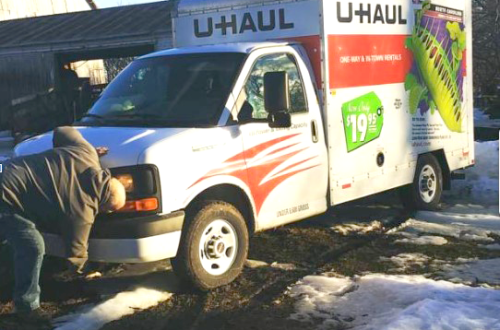Logic + Empathy
For Father’s Day, my partner and I picked up sandwiches from our local deli counter. While we could have placed the order in advance, the instructions to do so were unclear — so counter ordering it was. When we approached the counter and told the deli employee we needed nine sandwiches, her eyes bulged. NINE SANDWICHES? She could not believe her ears. In addition to her ears and eyes, I reckon she would have stuck her tongue out at us too, but pandemic masks prohibited this display of incredulity and disgust.
As a born-and-raised Midwesterner, politeness and customer service is the unofficial gospel. Where I’m from, it is understood that you were born to serve. In fact, I got my first job at 13, serving others burgers, pork tenderloins and shrimp baskets at a roadside diner in a town of 300 people. I took the orders. I made the milkshakes. I anticipated needs and served whomever arrived: locals, bikers on their way to Sturgis, the Amish. I happily scooped up the tips reflecting my efforts, usually about 50 cents, but sometimes paper money. It remains the best job I have ever had.
Throughout my career, I have been repeatedly taught another extremely important lesson: empathy. From the first month of working in nonprofits, I was introduced to a phrase I try to live by, “It’s rarely about what’s wrong with you, but rather — ‘what happened to you?’” This phrase has become essential to all sorts of situations I have experienced, from families acting in unpredictable ways as they go through their hospice journey to board members screaming in my face about perceived unfairness at their YMCA. It is not easy and it is not automatic, but considering, “what on Earth happened to you to make you react this way?” not only keeps me curious about the humans I help, but also keeps me from walking away from the often exhausting career that is public service.
I cannot say I was subtle about my shock at the rudeness of Father’s Day Sandwich Maker. I am still astounded by terrible customer service and general rudeness in everyday life. But each time that stubborn little phrase rises to the surface. “Wow, I wonder what could have happened to them today/yesterday/in their lifetime to make them act like this?”
About 7 years ago I was faced with training a team of about 15 employees about customer service. As I reflected on what guides me, I landed on my personal philosophy for enduring in an often rude, unpredictable world. A philosophy that helps me to this day: Logic + Empathy.
I encourage you to approach your challenges this way too, whether they are conflicts at work, a bratty loved one or just someone rude on the freeway. First, logically approach the situation and make an initial judgment based on the facts. THEN, consider the empathic response — and do that.
In the case of my Sandwich Artist, logically I was CLEARLY PEEVED. I made comments to my partner and rolled my eyes. How ridiculous that someone whose entire job is to make sandwiches, is annoyed I asked them to make me some sandwiches. But then, I thought about them. As a person no different than me. And I started to cool off. I have no idea what happened to them that day that made nine sandwiches seem insurmountable. But I know for sure I have been there too.
Before technology rendered them obsolete, cabooses were used as the office and living space for train conductors, as well as a place to observe the surroundings for safety and apply brakes as needed. Trains understood you needed someone living and paying close attention from a wider, more distant perspective as the engine plows ahead. Make sure you have an Empathy Caboose on your Logic Train. Your logic will unfailingly guide you and keep you on track. Trust it. But don’t forget that following close behind is your emergency brake function, to slow us down and help us consider our surroundings — that we are part of a society of other flawed human beings, just doing our best.
And that is where we should live.



